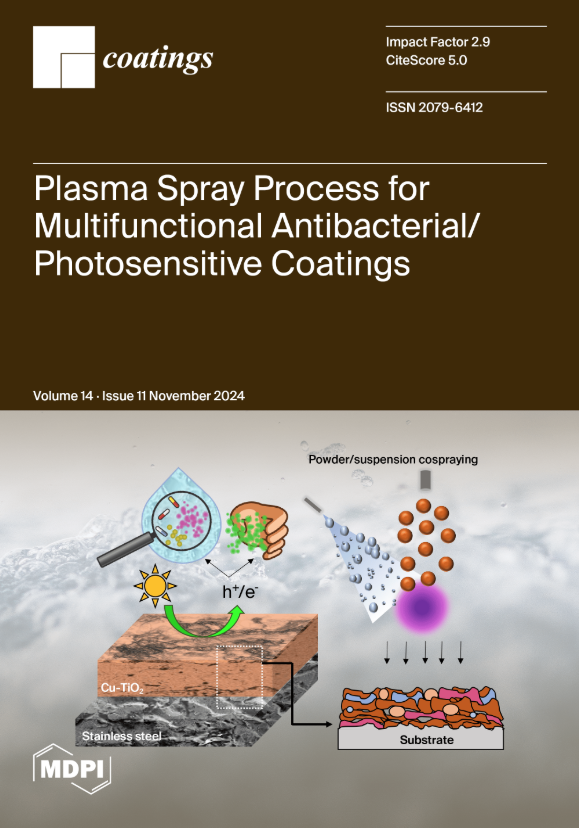Controllable Crystallization of Perovskite Films during the Blade-Coating Fabrication Process for Efficient and Stable Solar Cells
IF 2.8
3区 材料科学
Q2 MATERIALS SCIENCE, COATINGS & FILMS
引用次数: 0
Abstract
The scalable production of high-quality perovskite thin films is pivotal for the industrialization of perovskite thin film solar cells. Consequently, the solvent system employed for the fabrication of large-area perovskite films via coating processes has attracted significant attention. In this study, a solvent system utilizing a volatile solvent as the primary reagent has been developed to facilitate the rapid nucleation of volatile compounds. While adding the liquid Lewis base dimethylformamide (DMF) can help to improve the microstructure of perovskite films, its slow volatilization renders the crystal growth process uncontrollable. Based on the solvent system containing DMF and ethanol (EtOH), introducing a small amount of NH4Cl increases the proportion of the intermediate phase in the precursor films. This not only results in a controllable growth process for the perovskite crystals but also contributes to the improvement of the film microstructure. Under the simulated illumination (AM1.5, 1000 W/m2), the photoelectric conversion efficiency (PCE) of the inverted solar cells has been improved to 20.12%. Furthermore, after 500 hours of continuous illumination, the photovoltaic device can retain 95.6 % of the initial, indicating that the solvent system is suitable for the scalable fabrication of high-quality FAPbI3 thin films.在刀片涂层制造过程中实现过氧化物薄膜的可控结晶,从而制造出高效稳定的太阳能电池
可规模化生产高质量的过氧化物薄膜对于过氧化物薄膜太阳能电池的产业化至关重要。因此,通过镀膜工艺制作大面积包晶石薄膜所采用的溶剂系统备受关注。本研究开发了一种以挥发性溶剂为主要试剂的溶剂系统,以促进挥发性化合物的快速成核。虽然添加液态路易斯碱二甲基甲酰胺(DMF)有助于改善包晶薄膜的微观结构,但其缓慢的挥发使晶体生长过程变得难以控制。在含有 DMF 和乙醇(EtOH)的溶剂系统基础上,引入少量 NH4Cl 可增加前驱体薄膜中中间相的比例。这不仅使包晶石晶体的生长过程变得可控,还有助于改善薄膜的微观结构。在模拟照明(AM1.5,1000 W/m2)条件下,倒置太阳能电池的光电转换效率(PCE)提高到了 20.12%。此外,在连续光照 500 小时后,光伏装置仍能保持 95.6% 的初始光照,这表明该溶剂体系适用于高质量 FAPbI3 薄膜的规模化制造。
本文章由计算机程序翻译,如有差异,请以英文原文为准。
求助全文
约1分钟内获得全文
求助全文
来源期刊

Coatings
Materials Science-Surfaces, Coatings and Films
CiteScore
5.00
自引率
11.80%
发文量
1657
审稿时长
1.4 months
期刊介绍:
Coatings is an international, peer-reviewed open access journal of coatings and surface engineering. It publishes reviews, research articles, communications and technical notes. Our aim is to encourage scientists to publish their experimental and theoretical results in as much detail as possible. There is no restriction on the length of the papers. Full experimental and/or methodical details must be provided. There are, in addition, unique features of this journal:
* manuscripts regarding research proposals and research ideas will be particularly welcomed
* electronic files or software regarding the full details of the calculation and experimental procedure - if unable to be published in a normal way - can be deposited as supplementary material
 求助内容:
求助内容: 应助结果提醒方式:
应助结果提醒方式:


